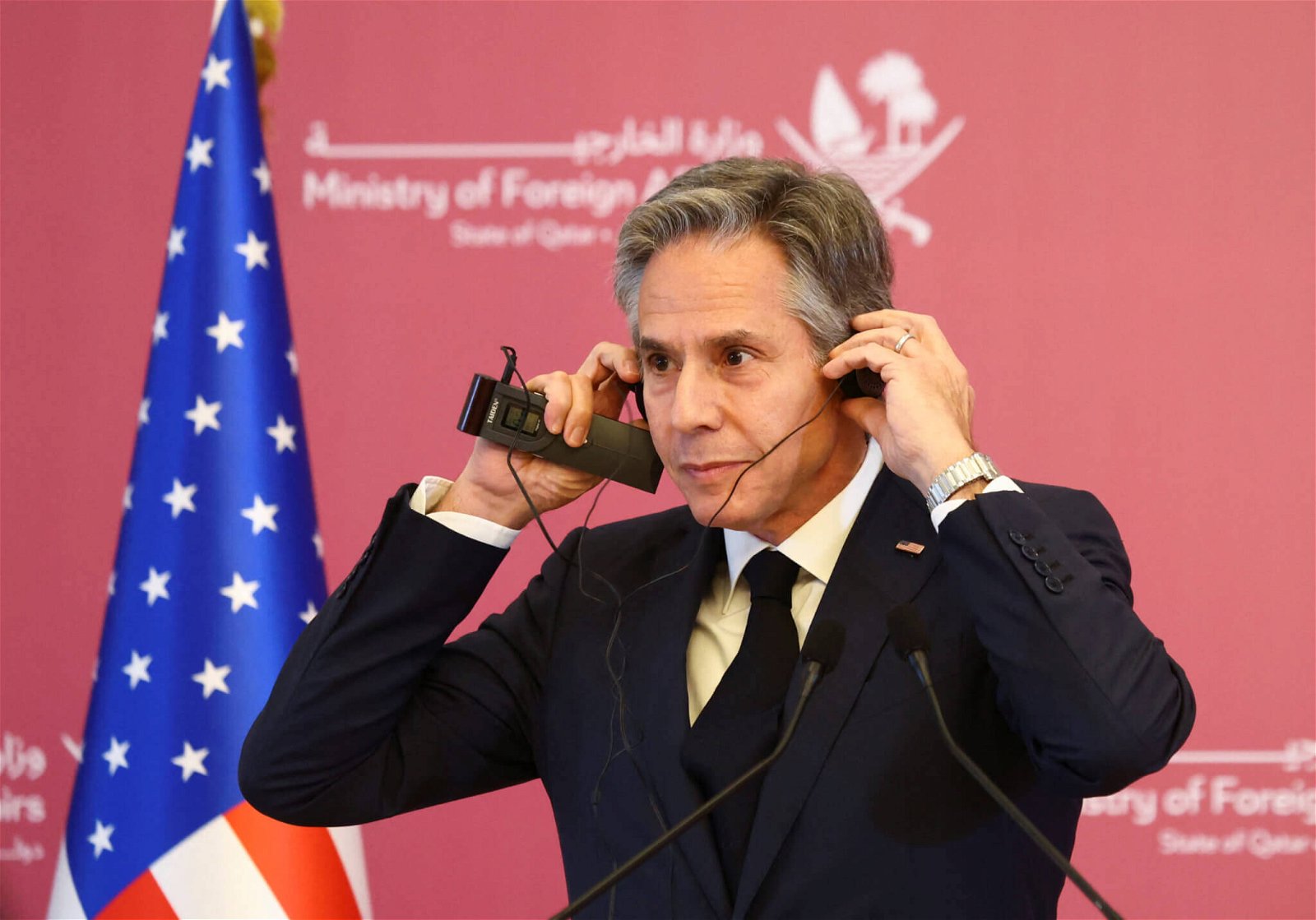
Semaneh Tamrat Jemere
Ottawa, Canada
Since the war in Northern Ethiopia started in November 2020, the United States and Ethiopia have spoken to one another on several occasions. After the talks, the State Department (SD) has the practice of issuing press releases for reasons of transparency and record-keeping afterward. For most Ethiopian observers, SD’s press releases appear to contradict the reality on the ground and harm the national interest of America that the institution is supposed to advance. Worse of all the SD’s political and diplomatic positions were unambiguously skewed to appeasing the TPLF at the expense of 110 million people. Ethiopians are wondering how a historic and strategic partner of the East African nation pursues a policy that promotes the violence and crimes committed by the TPLF rebel group.
The glaring question here is that are American policymakers naive enough to put at stake the hundred years old diplomatic relations between the two countries for the sake of grooming a rebel group to power. Truly speaking America is not naive but willfully ignorant of facts surrounding the conflict in Northern Ethiopia. The US fully understands the geopolitical significance of the Horn of Africa and the strategic role Ethiopia plays in the maintenance of order and stability in the region. However, recent trends in the USA's measures and approaches do not take into consideration this complex context which further contributes to the intractability of conflicts in the region. We hope the US should know better and well placed than any other country to understand the political and security ramifications as well as risks of treating TPLF as an equal party with a legitimate government that is constitutionally elected through popular sovereignty of the Ethiopian people
However, this time around the talk between PM Abiy and Secretary Blinken is worth investing our energy to synthesize the silver lining of SD’s brief press release of November 23, 2022. Though the media brief is quite succinct, it contains significant messages indicative of the US administration’s intent of distancing itself from its long-held appeasement strategy. Undoubtedly, the US seems to be weighing into the political cost of appeasing the TPLF as exemplified in the following statement of the US administration.
“…… Antony J. Blinken spoke today with …. Abiy Ahmed about efforts to bring lasting peace to northern Ethiopia. …Blinken recognized ongoing efforts by the Ethiopian government to work towards unhindered humanitarian assistance and restoration of basic services in the Tigray Region as well as in the neighboring Afar and Amhara Regions. The Secretary underscored the importance of immediately implementing the cessation of hostilities agreement, including the withdrawal of all foreign forces and concurrent disarmament of the Tigrayan forces. ……the United States remains committed to supporting the African Union-led process, including the AU monitoring and verification mechanism.”
In a nutshell, the talk is symptomatic of diplomatic resuscitation between the two countries that have been at loggerheads for two years. The statement sets the stage for toning down the unwarranted political rhetoric to rebuild mutual trust and understanding. Let us see how it is unlocking the political and diplomatic logjam that lingered for a few years now as follows:
The narrative of Lasting peace to Northern Ethiopia: Contrary to the US’s earlier stance of bringing peace only to Tigray, the statement affirms the administration’s commitment to bringing lasting peace to Northern Ethiopia. In previous press releases, the SD deliberately chose not to talk about bringing peace to the Amhara and Afar regions. This time around Blinken’s talk of peace for Northern Ethiopia signifies America’s tacit recognition of the sovereignty and territorial integrity of Ethiopia. It is a statement that debunked TPLF’s rhetoric of self-determination and the Government of Tigray state narrative.
The unhindered humanitarian assistance and restoration of basic services narrative: Blinken gave undue recognition to the Government of Ethiopia’s ongoing efforts of humanitarian assistance, and restoration of basic services in the Tigray, Amhara, and Afar regions of Ethiopia. This demonstrates the US’s new gambit of advocating for assistance and restoration of services to all three regions ravaged by the senseless war. On the part of the US Administration, it is a significant departure from the long-held anti-Amhara and Afar stance and a stunning admission of the reality on the ground.
The cessation of hostilities agreement narrative: The Secretary underscoring the significance of implementing the cessation of hostilities agreement dispels TPLF’s plan and preparation for another round of war. According to Obasanjo "War means the failure of politics." If TPLF opts for another round of war, it is the failure of the international community in making the huge mistake and calculated risk of ignoring its capacity to cause tremendous suffering and regional crisis. A proactive, objective and balanced assessment of the facts on the ground enhance US's capability to act accordingly with a goal that helps to promote security, peace, and cooperation.
The withdrawal of all foreign forces and concurrent disarmament narrative: the US’ insistence for the withdrawal of all foreign forces from Northern Ethiopia is a clear deviation from earlier held positions of squarely blaming the Eritrean forces. Blinken’s statement of foreign forces is a convoluted admission of the involvement of Sudanese & Egyptian forces supporting TPLF in Mekelle. Interestingly, this time around the US didn’t call for the withdrawal of the Amhara militia and Special Forces as they have been lamenting all along for two years. This is a stunning recognition of Ethiopia’s sovereign right of mobilizing its army, militia & special forces within the preview of its international boundary as deemed necessary.
Whatever the US administration’s demand for the withdrawal of foreign forces from Tigray seems unwarranted, the US knows that as a sovereign nation Ethiopia has the legal rights and political responsibility to make cooperation based on its national interest and security concerns. The Eritrean case is no exception to this rule.
Cognizant of the concern of the US as a strategic partner and diplomatic ally, the two countries need to look for better diplomatic engagements and communications to leverage the existing developments with regard to the matter. However, official statements denouncing Ethiopia's decision are not helpful to the cause but rather make Ethiopians question the intentions of the US administration and its foreign policy
towards Ethiopia. The US needs to disengage from undermining the trust and confidence that it used to enjoy from the Ethiopian people that has been built over several decades of friendship.
In addition, the Secretary underscoring the concurrent disarmament of Tigrayan forces herald the significance of cessation of hostilities as well as the implementation of the peace accord detrimental to the attainment of universal peace in Northern Ethiopia. Although the US agrees for Tigrayan forces to lay down their arms, it remains short of clearly stating the need for immediate commencement of this process by the TPLF forces. Yet, a blanket statement of Tigrayan forces could be viewed as an all-encompassing Tigrayan force inside the Tigray region. This should be taken as a good omen of tacit agreement to the peace deal.
Finally, Blinken concluded his talks with PM Abiy with full recognition and adherence to the African Union brokered peace agreement. Reading through the silver lining of the press release, the US administration seems to have debunked the hopes & aspirations of other interest groups. Undoubtedly this can be considered a diplomatic victory both for the African Union and the Government of Ethiopia.
Semaneh Tamrat Jemere, Ottawa, Canada
--
TPLF-Tigray Peoples Liberation Front
https://et.usembassy.gov/secretary-blinkens-call-with-ethiopian-prime-minister-abiy-3/
Underlines and Boldface added by the authors
https://trendsresearch.org/insight/eritrea-and-sudan-in-ethiopias-tigray-conflict-and-implications-for-the-horn-of-africa/
https://zehabesha.com/making-sense-of-blinken-abiy-talks-of-november-22-2022/

No comments:
Post a Comment